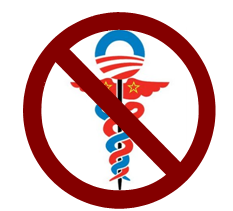
Every state that has announced a decision since the U.S. Department of Health and Human Services extended an original deadline to December 14 has chosen to reject enacting a stand-alone state health exchange.
Small government groups like Americans for Limited Government have hailed these rejections saying they, “give employers in their state a fighting chance against Obamacare.“
The Cato Institute, a libertarian think-tank, released a legal analysis of Obamacare arguing that without the state health care exchanges, the federal government is not given the authority to impose penalties on employers found to have violated the law. Citing Congress’ failure to give federal health insurance exchanges the authority to find an employer in violation of the law, Cato argues that this statutory failure requires Congress to revisit the issue if the federal government wants these expanded enforcement powers.
Subsequent to passage, the Obama Administration has attempted to solve this legal problem by simply having the Internal Revenue Service declare that they are enforcing the law regardless of what the statute actually says.
The issue becomes important as employers in states without state health insurance exchanges will have legal grounds to fight any enforcement action levied against them by the IRS, whereas, those in states with state exchanges are stuck with the law.
Bill Wilson explained, “The competitive advantage to employers in states that reject state health insurance exchanges is obvious as they will most likely be found to be exempt from enforcement of Obamacare in federal court, essentially being opted out of its costly and ill-conceived requirements.”
Under Obamacare, state health exchanges were created to provide both a clearinghouse of health insurance information in that state, and to trigger enforcement of the law against employers. In states where a decision is made to not spend the money, time and effort to create a health exchange, the federal government takes on that role, so the health insurance clearinghouse will exist under either circumstance.
In recent weeks, a number of companies have announced plans to limit their workforce to working fewer than the Obamacare proscribed 30 hours a week, in order to protect themselves from facing massive health care cost increases under the law.
The states of Arkansas, Florida, Iowa, Idaho, Michigan, Pennsylvania, Utah and West Virginia are still considered to be undecided on whether to implement a state exchange.
Rick Manning is the Director of Communications for Americans for Limited Government.






